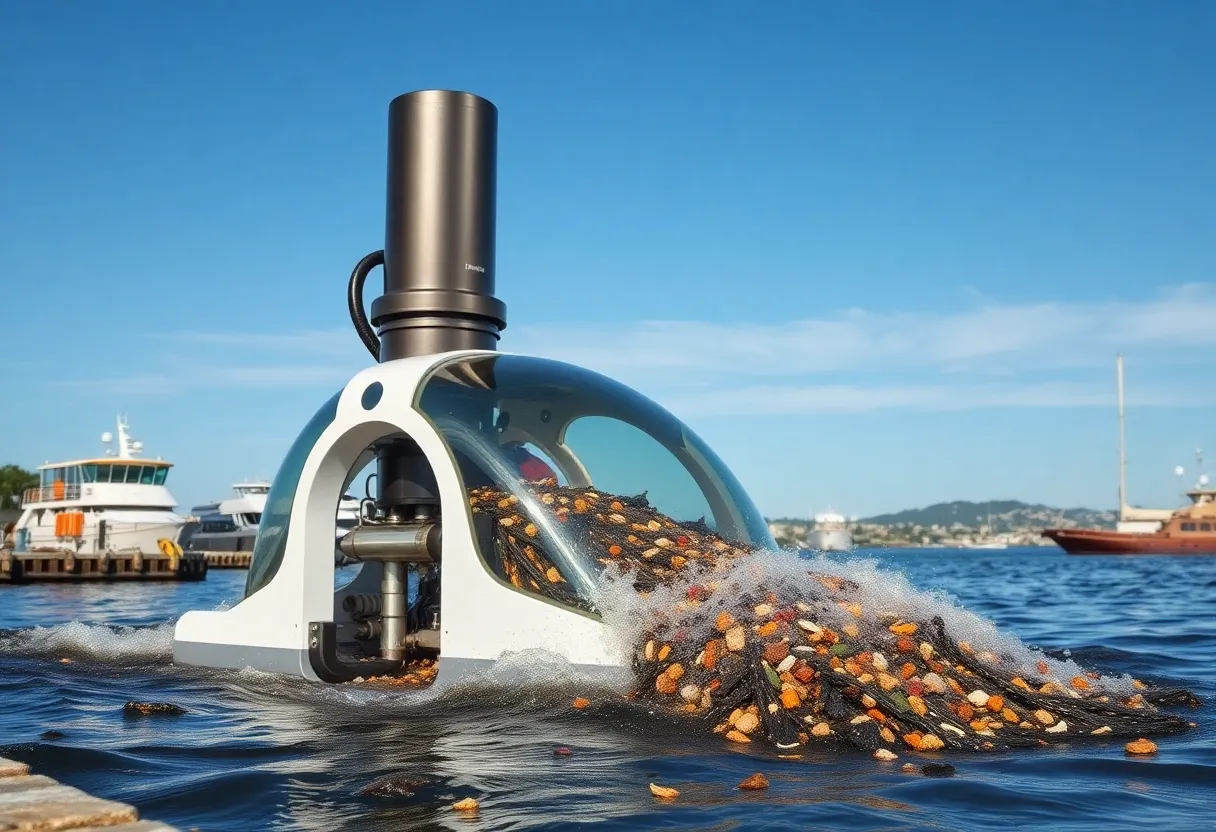News Summary
Clean Earth Rovers, co-founded by Michael Arens, has introduced ‘The Rover,’ a mobile device designed to combat water pollution. This environmentally-friendly technology aims to assist municipalities in cleaning debris from waterways. Valued at $3 million, the company has raised significant funding and has already demonstrated the effectiveness of The Rover in areas like Newport Beach and Huntington Beach, successfully removing tons of trash. The venture reflects a growing commitment to addressing the pressing challenge of waterway pollution through innovative solutions.
St. Louis – A promising new venture is making strides in the field of environmental conservation, with a focus on solving water pollution issues. Clean Earth Rovers, co-founded by Michael Arens in 2019, has developed a unique water-cleaning device named “The Rover.” This innovation is designed to assist municipalities in collecting debris from harbors and bays, addressing the growing problem of waterway pollution.
Headquartered in Costa Mesa, California, Clean Earth Rovers was born out of Arens’ desire to tackle ocean conservation challenges. His interest in the field ignited during a high school lecture on ocean pollution and further developed while studying business at Xavier University in Cincinnati. Over the years, the company has successfully raised approximately $350,000 in funding, including support from RevHub, an Orange County accelerator.
Last year, Clean Earth Rovers was valued at around $3 million. Arens, along with co-founder David Constantine, was recognized in the Forbes 30 Under 30 list in the Energy/Sustainability category for their efforts in advancing sustainable technology. The Rover, which resembles a Roomba but operates on water, has already been deployed in notable locations like Newport Beach, Los Angeles, and Huntington Beach, where it has proven effective in cleaning waterways.
During its operation in Huntington Beach over the past year, The Rover successfully removed seven and a half tons of trash from the local waters. Its design features a compact catamaran shape equipped with a net for collecting debris, a flashing light for visibility, and programmed capabilities that allow it to avoid boats and obstacles.
The Rover is capable of collecting up to 100 pounds of debris in a single bag while also being adaptable to different environmental conditions. It can gather two gallons of oil per minute, retrieve aquatic vegetation from as deep as five feet below the surface, and spray herbicides on algae and invasive plant species, showcasing its multifunctional design.
Currently, Clean Earth Rovers employs six staff members and has constructed a total of 15 Rovers to date. Although the company initially aimed for a $500,000 annual run rate, it has refocused its strategy on recurring revenue streams and is now nearing a $300,000 annual revenue rate from those models.
In addition to The Rover, Clean Earth Rovers offers two innovative products: the DataPod and the DataHub. The DataPod is a scalable smart buoy that wirelessly reports water quality data to the cloud and provides live alerts to users. The DataHub serves as an online platform for managing The Rover and analyzing water quality data, enhancing the overall efficiency of the pollution cleanup process.
Waterway pollution is a significant societal challenge, leading to more than $2 billion in economic losses annually, according to company reports. There are over 15,000 recorded pollution events each year, resulting in medical expenses exceeding $300 million. The founders of Clean Earth Rovers recognize the pressing need for effective solutions to address these issues, driving their mission to create innovative technologies that can have a lasting impact on environmental preservation.
As Clean Earth Rovers continues to expand its reach and technological capabilities, the focus remains clear: to develop solutions that not only clean up waterways but also promote a healthier environment for future generations. The active engagement of communities through The Rover and additional technologies reflects a growing awareness of the importance of ocean conservation and pollution prevention.
Deeper Dive: News & Info About This Topic
HERE Resources
Additional Resources
- Oceanographic Magazine: Florida’s Dolphins at Risk from Plastics
- Google Search: Florida dolphins plastics
- Florida Weekly: From Beach to Bloodstream
- Wikipedia: Water Pollution
- Newsweek: Florida Water Fecal Pollution
- Encyclopedia Britannica: Ocean Pollution
- BBC Future: Florida’s Everglades Reservoir
- Newsweek: Enterococcus Bacteria at Florida Beaches

Author: STAFF HERE COSTA MESA WRITER
The COSTA MESA STAFF WRITER represents the experienced team at HERECostaMesa.com, your go-to source for actionable local news and information in Costa Mesa, Orange County, and beyond. Specializing in "news you can use," we cover essential topics like product reviews for personal and business needs, local business directories, politics, real estate trends, neighborhood insights, and state news affecting the area—with deep expertise drawn from years of dedicated reporting and strong community input, including local press releases and business updates. We deliver top reporting on high-value events such as the OC Fair, Concerts in the Park, and Fish Fry. Our coverage extends to key organizations like the Costa Mesa Chamber of Commerce and Boys & Girls Clubs of Central Orange Coast, plus leading businesses in retail, fashion, and technology that power the local economy such as Vans, Experian, and South Coast Plaza. As part of the broader HERE network, including HEREAnaheim.com, HEREBeverlyHills.com, HERECoronado.com, HEREHollywood.com, HEREHuntingtonBeach.com, HERELongBeach.com, HERELosAngeles.com, HEREMissionViejo.com, HERESanDiego.com, and HERESantaAna.com, we provide comprehensive, credible insights into California's dynamic landscape.


